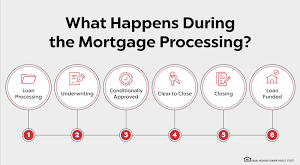Low-Income Mortgage Calculator: How to Navigate Affordable Home Financing. Navigating the world of home financing can be daunting, especially for those with lower incomes. Fortunately, a low-income mortgage calculator can be a valuable tool for potential homeowners seeking affordable options. This article explores how low-income mortgage calculators work, their benefits, and how they can help you secure a mortgage that fits your budget.
Understanding Low-Income Mortgage Calculators
A low-income mortgage calculator is a specialized tool designed to help individuals with lower incomes estimate their mortgage payments and determine affordability. It takes into account various factors such as income, debt, interest rates, and loan terms to provide a realistic view of what you can afford.
How Low-Income Mortgage Calculators Work
- Input Variables: Users enter information such as their annual income, monthly debts, down payment amount, loan term, and interest rate.
- Calculation Process: The calculator uses these inputs to estimate monthly mortgage payments, including principal, interest, property taxes, and insurance.
- Affordability Assessment: The tool assesses whether the estimated mortgage payment fits within the user’s budget, considering their income and other financial obligations.
Benefits of Using a Low-Income Mortgage Calculator
- Budget-Friendly Estimates: Helps users understand what they can afford based on their financial situation.
- Comparative Analysis: Allows users to compare different loan options and terms to find the best fit.
- Financial Planning: Assists in budgeting for other homeownership costs, such as maintenance and utilities.
- Pre-Qualification: Provides an estimate of pre-qualification amounts, helping users get a clearer idea of their mortgage potential.
Key Factors to Consider
- Income: The primary factor in determining mortgage affordability. Higher income typically allows for a higher mortgage payment.
- Down Payment: The amount of money paid upfront, which affects the loan amount and monthly payments.
- Interest Rate: A lower interest rate reduces monthly payments and overall loan cost.
- Loan Term: Longer terms generally result in lower monthly payments but higher total interest.
- Debt-to-Income Ratio (DTI): A measure of how much of your income goes toward debt payments, influencing loan eligibility.
Steps to Use a Low-Income Mortgage Calculator
- Gather Financial Information: Collect details on income, debts, and available down payment.
- Select Loan Parameters: Choose the loan term and interest rate based on current market conditions.
- Enter Data: Input the gathered information into the calculator.
- Review Results: Analyze the estimated monthly payments and affordability.
Tips for Using a Low-Income Mortgage Calculator
- Update Regularly: Recalculate as your financial situation changes or as interest rates fluctuate.
- Include All Costs: Ensure you factor in property taxes, insurance, and maintenance costs.
- Compare Multiple Scenarios: Test different down payment amounts and loan terms to find the best option.
- Consult Professionals: Use the calculator as a starting point, but consult with mortgage professionals for personalized advice.
- Understand Your Budget: Ensure that the estimated payments fit comfortably within your monthly budget.
- Check for Accuracy: Verify that the calculator is up-to-date with current interest rates and loan options.
- Consider Additional Costs: Account for potential future expenses related to homeownership.
- Explore Assistance Programs: Look into government programs or grants for additional support.
- Review Your Credit: A better credit score may qualify you for lower interest rates.
- Plan for the Long Term: Consider how your financial situation may change over the life of the loan.
Frequently Asked Questions (FAQs)
- What is a low-income mortgage calculator?
- A tool that estimates mortgage payments based on low-income parameters, helping users determine affordability.
- How accurate are mortgage calculators?
- Calculators provide estimates based on the inputs provided, but actual results may vary depending on lender terms and other factors.
- Can a low-income mortgage calculator help with pre-qualification?
- Yes, it provides a rough estimate of pre-qualification amounts based on your financial data.
- What factors affect mortgage affordability?
- Income, down payment, interest rate, loan term, and debt-to-income ratio are key factors.
- How often should I use the calculator?
- Regularly, especially if there are changes in your financial situation or interest rates.
- Are there specific calculators for different types of loans?
- Yes, some calculators are designed for specific loan types, such as FHA or VA loans.
- How does the down payment affect the mortgage?
- A larger down payment reduces the loan amount and monthly payments, potentially improving affordability.
- What should I include in my monthly budget?
- Include mortgage payments, property taxes, insurance, utilities, and maintenance costs.
- Can I use a mortgage calculator if I have bad credit?
- Yes, but be aware that poor credit may result in higher interest rates and affect affordability.
- Where can I find assistance for low-income homebuyers?
- Look for government programs, non-profit organizations, and local housing authorities that offer support.
Conclusion
A low-income mortgage calculator is an invaluable tool for those looking to purchase a home on a limited budget. By providing estimates of monthly payments and affordability, it helps users make informed decisions and plan effectively for homeownership. While the calculator offers a helpful starting point, consulting with mortgage professionals and considering all related costs are crucial steps in securing a mortgage that suits your financial situation. With careful planning and the right tools, achieving homeownership within your means is within reach.
 mortgage.kbk.news
mortgage.kbk.news
